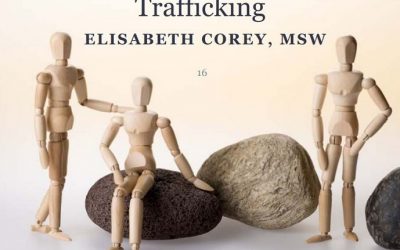This webinar lays the foundation for understanding the types of domestic trafficking, the traumatic impacts of victimization, and operationalizing trauma-informed responses within new and existing advocacy structures and partnerships.
- Types of Domestic Trafficking: Understanding the differences between pimp-, gang-, parent-, crime syndicate- and transgender-controlled trafficking serves to guide outreach and service strategies.
- Complex Trauma lives in the physical, sexual, emotional, spiritual, mental/cognitive, relational, behavioral, and/or parenting experiences of survivors.
- Trauma-Informed Care integrates the impact of individual, historic, chronic, insidious, and community-, family- and systems-inflicted trauma into program design.
- Anti-trafficking responses require systems to learn new practices and engage in new multi-agency partnerships, so at critical points of contact, such as arrest, release, healthcare, counseling, shelter, etc., they are trauma-informed gateways to help, healing and safety.
Related Resources
PowerfuL Partnerships: Collaborative efforts to address human trafficking affecting AAPI communities, 2022
Alia El-Sawi, a Victim Assistance Specialist at the Department of Homeland Security, joins API-GBV for our first “fireside chat” hosted by our Executive Director Monica Khant. Drawing also from her previous role as the Anti-Human Trafficking Coordinator at a community-based organization that provides culturally-responsive services for survivors of human trafficking, Alia will discuss what can be done to increase coordination and communication between DHS agents and community-based advocates in responding to trafficking situations and minimizing trauma for survivors. The conversation will also illuminate challenges to current anti-trafficking efforts, including fear of reporting, human-trafficking’s concurrence with other forms of gender-based violence, and the abundant stereotypes around the trafficking of AAPI individuals.
Trafficking: Trauma & Trauma-Informed Collaboration & Advocacy, 2018
Building from what trafficking survivors have taught us, this webinar discusses how to identify survivors, how past experience of help-seeking can influence current attempts, and the importance of trauma-informed care at different points of contact with survivors such as raids, arrest, and at shelters.
Considerations and Recommendations on Trauma-Informed Advocacy for Trafficking Survivors, 2017
This TA Brief addresses the complexity of advocacy for adult and minor survivors of trafficking. Topics include: Definitions, Analysis/Root Causes, Trauma-Informed Advocacy, Endangerment & Confidentiality, and Considerations & Recommendations at Points of Contact — raids, arrest, custody and release, legal processes, shelters, and health and mental health systems.
Intersections of Human Trafficking, Domestic Violence, and Sexual Assault: National Organizational Advocacy Roundtable, 2016
Advocates representing Native programs, domestic and sexual assault state coalitions, and direct service agencies examine the scope of the problem, resources, needs, challenges, strategies, and principles to build and sustain coordinated systems of service provision and survivor-centered advocacy.
Webinars on Survivor-Centered, Trauma-Informed Advocacy for Trafficking Survivors
a. Advocacy & Services for Trafficking Survivors, 2014: A comprehensive overview of sex and labor trafficking – actions/means/purposes, data, root causes, traumas and oppressions, help-seeking, legal remedies, cross-systems trauma-informed collaboration.
b. Supporting Domestic Trafficking Survivors, 2015: Two national experts, Tina Frundt and Elisabeth Corey, lay the foundations for understanding domestic minor sex trafficking, followed by the traumatic impacts of victimization and operationalizing trauma-informed responses within new and existing advocacy structures and partnerships.
c. The Culture of Family-Controlled Trafficking, 2016: Elisabeth Corey reaches into her story to teach us about the traffickers, the enablers, and the family on the outside and inside that operate family-controlled trafficking; and how survivors can be helped.
The Culture of Family Controlled Trafficking, 2016
Breaking down stereotypes surrounding family-controlled trafficking.



